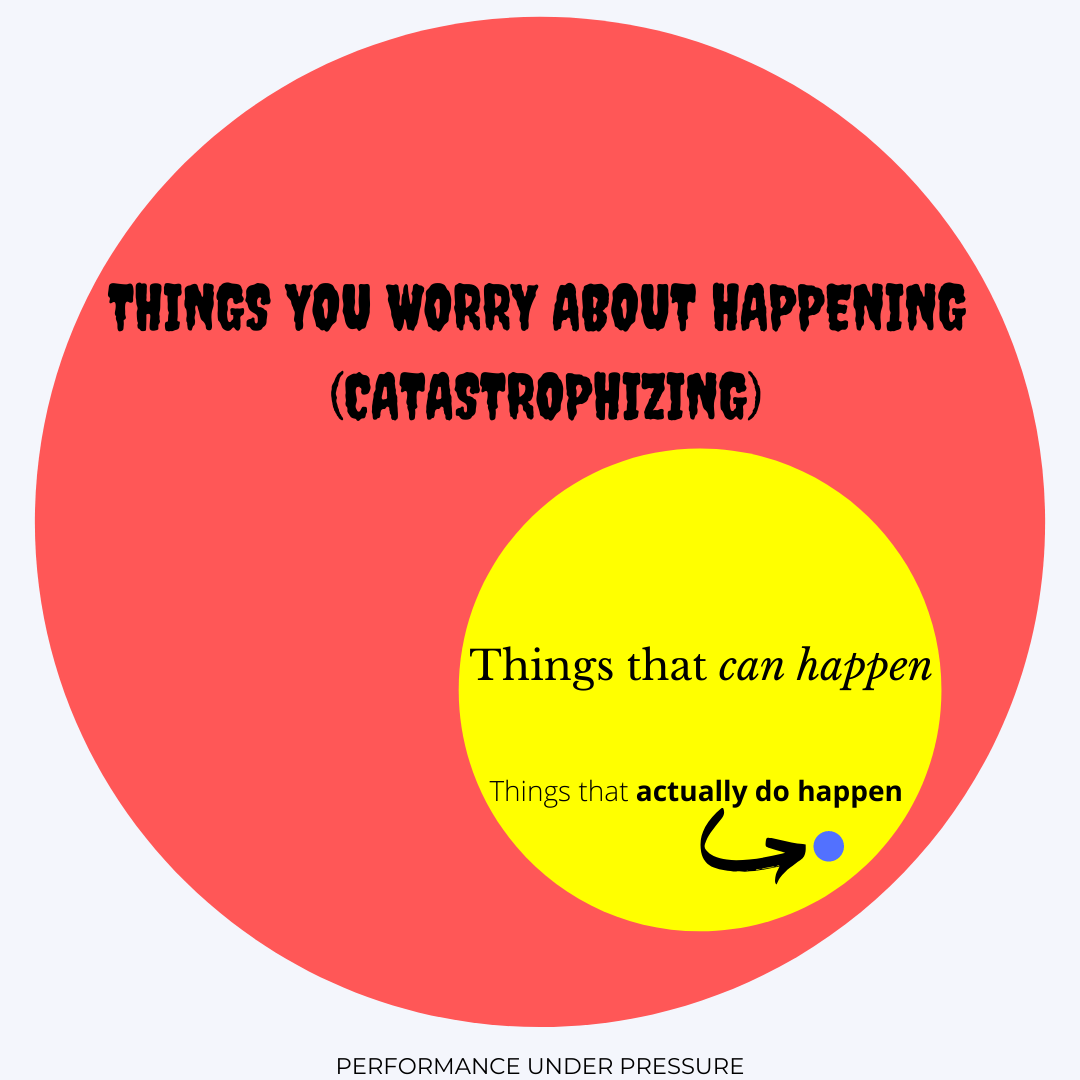What is "Doomsday thinking?"
It’s snake season right now in Lennox Head. 🐍 Recently I had the pleasure of almost stepping on the 2nd most venomous snake in the world, the Eastern brown snake. 😳 Needless to say I was a little freaked out, but fortunately I managed to dance my way around the 2m long critter as it slithered away into the bushes!
Once I had calmed down a bit and continued on my walk, I came across another snake, but this time I had a completely different reaction. Instead of immediately feeling fear, I was much more curious about what the snake really looked like; its colourations, how big it was, and how it moved as it slithered away from me. I found this change quite interesting, and it got me thinking about how I approach other fear-inducing things in my life.
While it’s natural for us to experience fear when we feel under threat or in danger, sometimes our imagination can get the better of us and we can immediately revert to thinking about the worst-case scenario under the circumstances. For me, the first thought that came into my mind was “*Expletives!* If I get bitten I’m going to die!” Although this was a minuscule possibility (on average only about 2 people die from snakebite in Australia each year) my imagination had already gone into overdrive and come up with probably the least likely outcome in the situation!
This is called “catastrophizing”, “doomsday thinking”, “magnifying”, or “cognitive distortion.” Performers can often fall into the trap of imagining the absolute worst outcome of how a concert or audition will play out, especially when you really want to play well. This happens when our imagination is running the show, rather than our rational, sensible, higher-thinking parts of our brain.
One good example of this is when you might say to yourself “I’m feeling a bit nervous about this concert tonight”, followed by “But if I’m feeling like this then I’ll probably not play very well…If I make a mistake I’m going to ruin the concert…then I won’t be asked back to do more gigs…then I’ll never make it as a performer...I’ll be a failure!” Notice how it starts out with something small – “I’m feeling a bit nervous”, then expands and spirals down rapidly to the worst possible outcome – “I’ll be a failure.”
Can you recognise if you’ve thought this way in the past?
If so, there are a few things you can do to manage catastrophic thinking in the future.
1. Awaken your awareness to your fear, tune into it, and explore it. Your body and mind are reacting to a perceived threat, so be present to your thoughts and feelings, and learn how you are responding so that you can more accurately assess the situation in the future. Doing this will help dissipate your fear and create a more stable emotional state.
2. Challenge your thinking and ask yourself “What are the chances of this really happening?” Once you can recognise that these thoughts are extremely unlikely to occur, you can begin to handle them better in the future.
3. Focus your attention on a more positive outcome. Focus on what you want to sound like, rather than what you DON’T want to sound like.
4. Use positive affirmations – “I know I can play a great concert tonight. This will be a great opportunity for me to share my love of music with others. I accept that I will make some mistakes, but through this I can learn and get better in the future.”
P.S. For those of you not from Australia who are thinking of visiting in the future, here’s a hilarious little video on all of the wonderful wildlife we have down here (that might give you a lovely fight-flight-freeze response!) 😆

